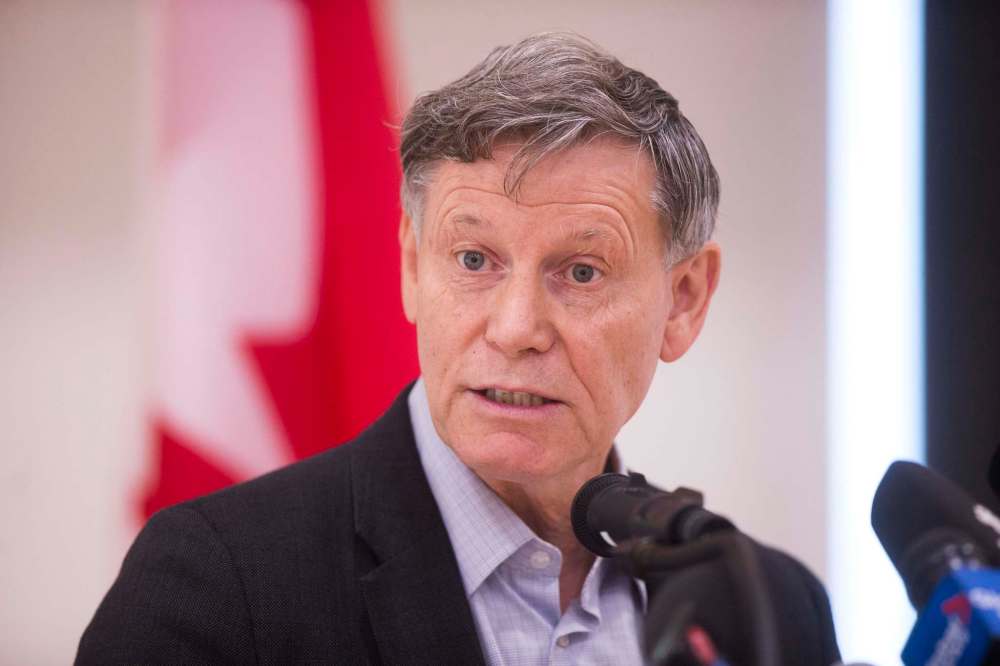First Nations, feds ‘not happy’ with state of air ambulance privatization
Advertisement
Read this article for free:
or
Already have an account? Log in here »
To continue reading, please subscribe:
Monthly Digital Subscription
$0 for the first 4 weeks*
- Enjoy unlimited reading on winnipegfreepress.com
- Read the E-Edition, our digital replica newspaper
- Access News Break, our award-winning app
- Play interactive puzzles
*No charge for 4 weeks then price increases to the regular rate of $19.00 plus GST every four weeks. Offer available to new and qualified returning subscribers only. Cancel any time.
Monthly Digital Subscription
$4.75/week*
- Enjoy unlimited reading on winnipegfreepress.com
- Read the E-Edition, our digital replica newspaper
- Access News Break, our award-winning app
- Play interactive puzzles
*Billed as $19 plus GST every four weeks. Cancel any time.
To continue reading, please subscribe:
Add Free Press access to your Brandon Sun subscription for only an additional
$1 for the first 4 weeks*
*Your next subscription payment will increase by $1.00 and you will be charged $16.99 plus GST for four weeks. After four weeks, your payment will increase to $23.99 plus GST every four weeks.
Read unlimited articles for free today:
or
Already have an account? Log in here »
Hey there, time traveller!
This article was published 12/02/2019 (2495 days ago), so information in it may no longer be current.
The province did not consult with representatives from the federal government nor Manitoba First Nations before issuing its request for proposal to privatize air ambulance services.
Both groups have major stakes in the possible privatization project and say they are disappointed by the lack of discussion.
“From the federal government’s point of view, this is not how we approach things. This is just not the approach that we take with our First Nations communities,” Terry Duguid, member of Parliament for Winnipeg South, said of the consultation process.

In an interview Monday, the Liberal MP said some of his constituents, including medical doctors and nurses, have approached him with safety concerns about air ambulance services in Manitoba.
Duguid said he’s also heard First Nations leaders, including Manitoba Keewatinowi Okimakanak Grand Chief Garrison Settee, are “not happy with the way things are proceeding.”
“I have great respect for (Manitoba Infrastructure) Minister Ron Schuler, and if I was to offer a piece of advice, it would be to take a step back and make sure that there’s proper consultation done,” he said.
Settee was not available for interviews on the topic Monday and Tuesday, but the Free Press obtained a copy of a letter Settee sent Tuesday to Premier Brian Pallister, which outlined his concerns.
“The critical care that is provided by Lifeflight to our northern First Nations is unmatched, and we strongly encourage the provincial government to review its plans to privatize all ambulance services in Manitoba,” he wrote.
Settee suggested Lifeflight be “excluded from the RFP process,” which also included general transport and wildfire-suppression services. He also called for a meeting between MKO, provincial and federal officials to discuss the air ambulance programs.
While the province provides Lifeflight services to critically injured patients outside a 200-kilometre radius of Winnipeg, Ottawa covers the costs to support First Nations people living on reserves for medical trips.
Through the Non-Insured Health Benefits (NIHB) program, the federal government spent $35.2 million on air ambulance services in Manitoba last fiscal year, said William Olscamp, a spokesperson from Indigenous Services Canada.
The province issued its RFP for privatization of government air services in July 2018, but did not engage with Indigenous Services until November to request the formation of a “small collaborative group” to work on “a technical and detailed basis to expedite the proposal process,” Olscamp said by email.
In a statement Tuesday, a provincial spokesperson speaking on Schuler’s behalf said the government plans to award the RFP for air ambulance services in the spring.
“We continue to have discussions with the federal government about the provision of air ambulance services, and are aware of the MKO’s concerns,” the spokesperson said by email. “It should be noted however that the province acts as an agent on behalf of the federal government in the delivery of air ambulance services to First Nations and remote communities.
“This part of the provincial air ambulance service (which does not include Lifeflight) is already delivered by private carriers, and the previous NDP government did not tender the service under an RFP process.”
It’s unclear what is stalling the provincial government’s final decisions on the RFP, which closed in September. It already awarded part of the air services contract (for wildfire suppression) to Babcock Canada in December.
Lifeflight physicians have pushed back on the province’s proposal to privatize the service, voicing safety concerns and threatening to resign en masse last October.
jessica.botelho@freepress.mb.ca
Twitter: @_jessbu


